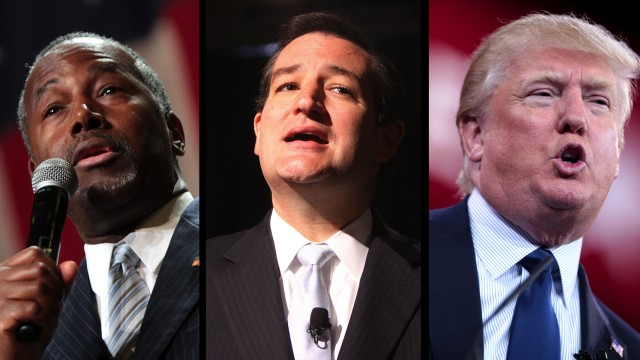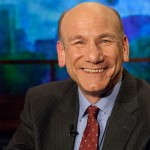This post first appeared at the Jewish Journal.

The horserace polls dominating today’s political news are worse than misleading – they’re bad for democracy. They’re as corrosive of America’s self-image as the news industry’s obsession with murder and disaster, a black hole wildly unwarranted by actual crime and catastrophe. They’re as toxic to our spirit as the advertising industry’s brilliant cultivation of loneliness and desire, a yearning it persuades us to slake by spending money. Worse, once the nominees are chosen, the point of poll coverage will be that, unless you live in a handful of zip codes, your vote for president is irrelevant. How’s that for civic uplift?
It’s more instructive to look at the people being polled than to look at the candidates. This cycle, despite a race on the Democratic side, it’s the Republican electorate – specifically, likely Republican primary and caucus voters – whose enthusiasm for Donald Trump, Ben Carson, Carly Fiorina et al has so disproportionately affected the nation’s sense of its psyche. Who are these 120,000 Hawkeyes, these quarter-million Granite Staters, these engaged Republicans in a small number of states whom pollsters have repeatedly surveyed in batches of a thousand? How representative are they of you or me or people we know? According to a Pew Research Center study:
- Nine out of 10 are white. Six out of 10 are men. Most are over 50. Most did not attend or graduate from college.
- Most are Protestant, and half attend religious services weekly or more. A third to half of them think humans have existed in their present form since the beginning of time.
- Nine out of 10 think it’s more important to protect than to control gun ownership, and half of their households include gun owners.
- Three out of four would vote against any official who voted to raise taxes.
- Nine out of 10 think that government is already doing too much to solve problems; that government aid to the poor does more harm than good; that blacks who can’t get ahead are responsible for their own condition; that it’s not government’s responsibility to make sure everyone has healthcare coverage. Nine out of 10 never use public transit.
- Three out of four think the country has gone too far to protect the environment, and they believe there’s no solid evidence that the Earth is getting warmer. Two-thirds think expanding oil and gas production should be the focus of energy policy.
- A majority agrees with the Tea Party. Most of their close friends share their views on government and politics. Three out of four think of themselves as a typical Americans.
They’re not typical Americans. There’s no such thing as a typical American. There’s not even such a thing as a typical Democrat or Republican. We belong to political tribes, and it’s more instructive to look at the clusters of people whose values we share than to ask what party we affiliate with. Pew’s political typology, based on a 2014 survey of more than 10,000 Americans, is the most ambitious attempt to identify our tribes that I know. There are seven, ranging from polarized wings like Solid Liberals and Steadfast Conservatives, each of which makes up about 20 percent of politically engaged Americans, to a diverse, less partisan, less predictable middle of Hard-Pressed Skeptics and Young Outsiders, each comprising about 10 percent of politically engaged Americans. Plus there are Bystanders, the 10 percent of the general public who aren’t registered to vote. If you want to know what tribe is the best match for your views – it’s fun! – take Pew’s quiz here: http://www.people-press.org/quiz/political-typology/
I drew the characteristics above from Pew data on the two groups most likely to vote in Republican primaries – socially conservative populists, and pro-Wall Street, pro-immigrant conservatives. If there’s little overlap between those tribes and yours, you may be disconcerted, or infuriated, that their presidential preferences drive the national news. Their voices are as lopsidedly powerful in the media as a talk radio bigot, a gangsta rapper, a sadistic cop, a car chase that consumes hours of meaningless local TV news, a missing plane that consumes months of cable news airtime, a Kentucky county clerk who won’t sign a gay marriage license, a Kardashian, a Koch, a shark attack.
On top of this, in November, Electoral College arithmetic means that the highest-value voters will be swing voters in swing states. Most states are reliably red or blue. The ones that aren’t, the key swing states, number – depending on whose analysis you like – 11, seven, five or just three. Many of those states will tip one way or another by a very small margin, which means that the presidential election could be decided by a crowd that wouldn’t fill the Rose Bowl. Though there will be some effort to pump up the turnout of the base, most advertising buying, ground game spending and candidate scheduling will be driven by the pursuit of those undecided voters.
Next fall, if you want to know what winning the White House is about, ignore the liberal or conservative tribes. The data most worth knowing will describe people who will have spent the past two years ignoring pretty much everything that Democrats and Republicans say they stand for and will do. These Americans will be unlike you, but the difference will not be ideological. It will be the difference between being passionate about a leader who shares your beliefs, and being uninformed, disengaged, alienated, indifferent.
Just like you, they’ll have only one vote to cast. But theirs will actually make a difference.
The views expressed in this post are the author’s alone, and presented here to offer a variety of perspectives to our readers.



